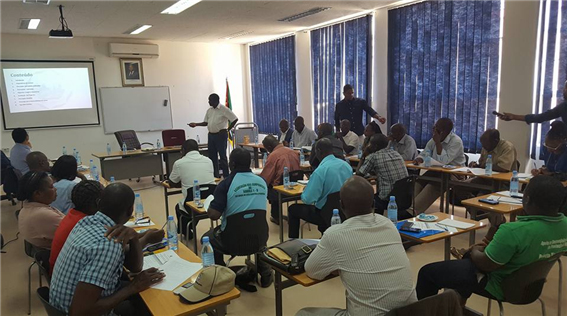CIAP Briefing
KREI held the ODA Roundtable Conference with 7 Asian Countries

Seoul, November 16-17, 2017 – The Korea Rural Economic Institute (KREI) held the ODA Roundtable Conference at the Koreana Hotel from November 16th to 17th as a part of the 15th Forum for International Agricultural Partnership(FIAP).
Since 2006, the Ministry of Agriculture, Food and Rural Affairs, Korea (MAFRA) has been implementing various development cooperation projects to strengthen bilateral relations with Asian countries and to contribute to achieving Sustainable Development Goals. With an aim to make another lead forward, the conference aimed for having in-depth discussions for establishing long-term development cooperation plans of Korean MAFRA with seven Asian countries, including Lao PDR, Mongolia, Vietnam, Myanmar, the Philippines, Indonesia, and Cambodia.
On the 16th, each country-specificroundtablesessionswere held consisted of following presentations. First, Director General or Director of Ministry of Agriculture introduced National Development Strategy (NDS) and National Agricultural Development Strategy (NADS) comprehensively. Second, an officer in charge of Official Development Assistance (ODA) explained each country’s Development Cooperation Strategy with donor countries or international organizations and introduced cases of development cooperation programs or projects in agricultural and rural development sector. Third, experts from the Asian Development Bank, and Food and Agriculture Organization of the United Nations and the World Bank talked about each organization’s Country Partnership Strategy (CPS) and cases of programs or projects in agricultural and rural development sector. Lastly, researchers from KREI presented Korea’s Development Cooperation Strategy and discussed prioritized areas of cooperation with partner countries.
In particular, KREI suggested the prioritized areas of cooperation in line with the agricultural development strategy of partner countries as well as Korea’s comparative advantage in the agricultural sector. These areas cover various stages of agricultural activities: they include establishment of farm production distribution system; improvement of agricultural productivity; development and management of irrigation and drainage system; establishment of agricultural technology and dissemination system; supporting post-harvest management system; construction of value chain system; comprehensive rural development; and establishment of livestock products export system.
On the 17th, national representatives from the seven Asian countries, participants from IOs, officials from MAFRA and KREI gathered together and had a comprehensive discussion session. Through active discussion, they summarized key points of the roundtable and discussed the future direction of Korea’s ODA in the agricultural and rural development sector.
The conference resulted in fruitful discussions, which will drive KREI to design successful ODA projects that will ensure partner countries to achieve their own agricultural goals, promoting a sustainable partnership with MAFRA in particular and Korean government in general. After going through additional internal and external discussion, KREI will confirm the key areas of cooperation with the seven Asian countries by early next year.
KREI implemented field survey for the ex-post evaluation on the establishment of agricultural educational training system in Mozambique

Maputo, Oct. 23 – Nov. 5, 2017 – The Korea Rural Economic Institute (KREI) implemented field survey for the project ex-post evaluation. It was part of the Ex-post evaluation on the ‘Establishment of Agricultural Educational Training system in Mozambique’ on the request of the Korea Rural Community Corporation(KRC), including the construction of the Agricultural Training Center(ATC) in Marracuene region, expert’s dispatch in the field of rice, maize and agricultural machinery, and supports for the necessary equipments and facilities. This ex-post evaluation has been designed to improve the sustainability and effectiveness of the project, to define recommendation and implication for the follow-up project management, and to contribute to improving the relevant policies.
During the 2-week field survey, the evaluation team implemented in-depth interview, questionnaire survey, site visit and evaluation seminar. The interviews were done with the officials in charge and other stakeholders to better understand the overall project and listen to their opinion. The questionnaire survey were done to conduct the evaluation regarding the effectiveness, impact and sustainability of the project with 100 answered beneficiaries. The site visit was to check how the Agricultural Training Center(ATC), established as part of this project, is operated and how the supported equipment and materials are used, and consider the result in the evaluation process. Lastly, the evaluation seminar in mozambique was held to embrace opinions of the Mozambican government officials, extension workers and farmers to achieve a more practical and reliable outcome from the evaluation.
According to the results of the field survey, overall project process was evaluated as ’very successful’ project thanks to the active participation from Mozambique side and compensation of the shortcomings with the following second project which include the construction of additional facilities and buildings and the supports of machineries and equipments. In the final report of this evaluation, the evaluation team suggested some proposals for the better operation of the ATC and successful planning for the third-phase project.

